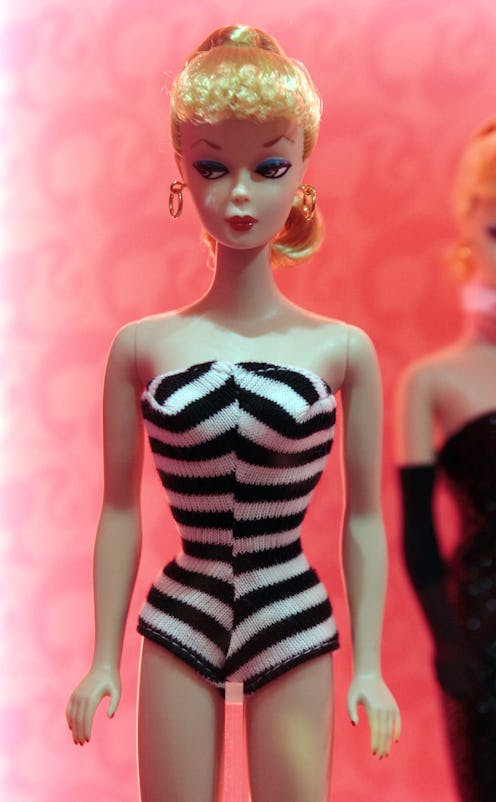Entertainment
Reese Witherspoon May Tackle Barbie Next
For as much flack as Barbie catches on a regular basis for promoting beauty ideals, you might be surprised to learn that Barbie has rather feminist origins. I was certainly shocked when I heard that Reese Witherspoon's next movie could be about Barbie — the Academy Award winning actress and producer is in the process of developing and maybe starring in a movie about the woman who made the doll so famous, according to Variety. Naturally, I figured it was about time we all learned who this woman was and why she decided it was a good idea to make a doll with impossible proportions and even more impossibly perfect life. Her doll became a lightning rod for heated debate about body image and the expectations women and their bodies face every day. End of story, right?
Wrong. It turns out the story isn’t as straightforward as it seems. As much as I may have cast aside Barbie in my mind, the woman who first created the doll brought Barbie with some pretty decent intentions. In fact, they were pretty feminist intentions. Creator Ruth Handler designed Barbie in 1959 for her husband’s company (that’s right, she was married to the owner of Mattel) in order for her daughter to play with something other than baby dolls. She wanted her daughter to aspire to be something other than a mother, so Ruth made the doll so that Barbara would be inspired to grow up to be a woman with choices.
Not quite the beginnings you were imagining now, are they?
So, the idea of a creating a movie about a formative business woman — the woman who created the most iconic doll in the world and would later become the president of Mattel Inc. — seems like a fascinating one, especially with this backstory in mind. Despite the debates that Barbie dolls have stirred and the criticisms against them, the doll really was the first of its kind. Barbie presented girls around the world with an image of a woman who, with the change of an outfit, could be anything she wanted to be — an astronaut, a doctor, a rockstar. And, sure, life choices aren’t quite that simple, nor are they quite that fashionable, and yes, Barbie represents an untouchable physical "ideal" (a whole other can of worms). But the origins of the doll did come from a good place, and I can appreciate that.
Handler passed away in 2002, and while the debate around her doll continues to rage, I'd like to think we can remember her as a powerful businesswoman and all around inspiring woman — maybe even more so than the doll she made so famous.
